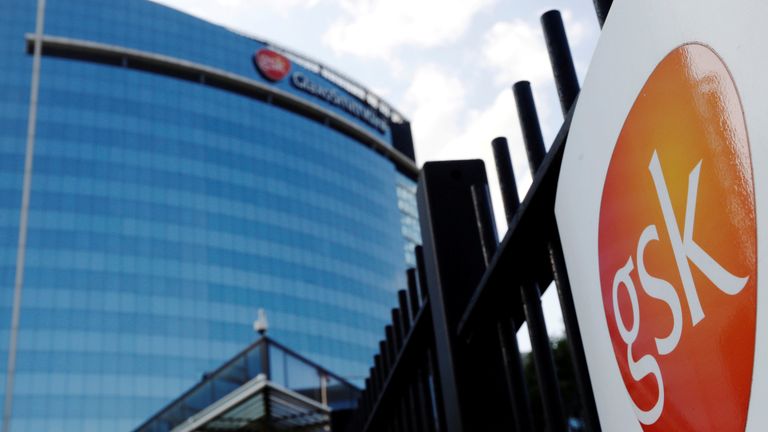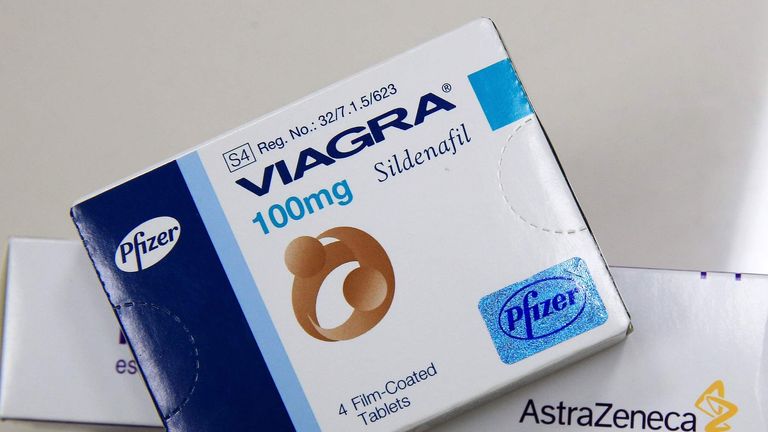GSK break-up is an investor-led roll of the dice
Sky's Ian King explains the rationale behind GSK's plans and says it will take years to be judged a success or failure.
Thursday 20 December 2018 12:51, UK
It has been 20 months since Emma Walmsley succeeded Sir Andrew Witty as chief executive of GlaxoSmithKline, Britain's premier drug maker.
The share price stood at 1659.5p on the day she took over and, since then, it has traded below that level for most of the time.
Today's dramatic announcement, in which GSK announced it was effectively breaking itself up, suggests it is a situation Ms Walmsley is no longer prepared to tolerate.
It is not as if Ms Walmsley has not been radical until now.
Just three months into the job, she announced a big shake-up of research and development (R&D), declaring that, rather than investing moderate sums in a lot of potential treatments, GSK would now place fewer, larger, bets.
It was a dramatic statement and a recognition that GSK's R&D operation has been less successful at developing blockbuster drugs than similar operations in some of its rivals.
:: GSK agrees £10bn healthcare merger with Pfizer
She poached Luke Miels, previously the head of Europe at rival AstraZeneca, to become GSK's new head of pharma.
This was followed in March this year with a £10bn deal to bolster GSK's position in consumer healthcare by taking ownership of products like the pain reliever Voltaren.
Since then, she has also taken GSK back into developing cancer treatments - an area de-emphasised by Sir Andrew - in a big way with the $5.5bn acquisition of US drug developer Tesaro, while also raising $3.3bn with the sale of Horlicks.
Today's deal, though, is the biggest roll of the dice yet. It is also a tacit acknowledgement that fund manager Neil Woodford, once one of the company's biggest shareholders, was right.
He argued that there was little common ground between selling toothpaste and in developing and selling medicines and spent many years urging GSK to break itself up. By the middle of last year, he had given up, selling his entire shareholding in GSK.
To judge by the market reaction, which saw GSK shares rise by more than 7% at one stage, shareholders like the decision.
Pooling its consumer healthcare arm with that of US giant Pfizer will create the world's biggest player in the field by some distance.
The business, which will see GSK brands like Sensodyne and Panadol come under the same roof as Pfizer brands like Advil and Centrum, will have 7.3% of the global market in consumer healthcare - overtaking Johnson & Johnson on 4%.
Yet the break-up will also put even more pressure on GSK's pharmaceuticals and vaccines division to come up with blockbuster products.
As a standalone business, it will no longer have the predictable cash flows of consumer healthcare to support its work, which will make it a riskier proposition for some investors and especially in view of the huge sums of money that can be wasted developing a drug that never comes to market.
The cash generated by GSK's over-the-counter products not only supported that work but also funded one of the most generous dividends paid by any FTSE-100 company.
This was why Sir Andrew was always reluctant to break up GSK.
The ability of the stand-alone pharma and vaccines business to come up with blockbuster medicines will come under greater scrutiny and, arguably, will be much more vulnerable to a takeover.
The row that accompanied Pfizer's unwanted £70bn takeover bid for AstraZeneca in 2014 would look like a storm in a teacup were any of the big players in global pharma to take a tilt at GSK's pharma and vaccines division.
AstraZeneca has for years found itself having to justify turning away Pfizer's billions and promising investors greater riches by sticking with it - and has come under immense scrutiny in the process.
So, investors - but not, embarrassingly for him, Mr Woodford - have got what they wanted.
Many of them will celebrate the break-up of another conglomerate and wonder why it is going to take Ms Walmsley three years to separate two seemingly unrelated businesses.
Others will say this is a classic example of City short-termism triumphing at the expense of the carefully-constructed business put together by Sir Andrew - who largely avoided the wave of deal-making that burst out across global pharma in the late 2000s and early 2010s - built to see GSK through all manner of different economic scenarios.
In the meantime, this is also probably the last big deal by Ian Read, Pfizer's Scottish-born chief executive, who at the end of the year moves upstairs to the chairman's office.
He had recently been trying to sell Pfizer's consumer goods division with, ironically, GSK being one of those who looked at buying the business but balked at the price.
This is not as elegant an exit from consumer healthcare as he would have liked but is probably as good a deal as he could have got under the circumstances.
For Ms Walmsley, meanwhile, this break-up again highlights her as one of the Footsie's most fascinating - and certainly most active - chief executives.
She has done more in less than two years than many do in twice that time.
Unfortunately, given the long cycles in which big pharma operates, it will take far longer than that to assess whether she has been a success or a failure.







